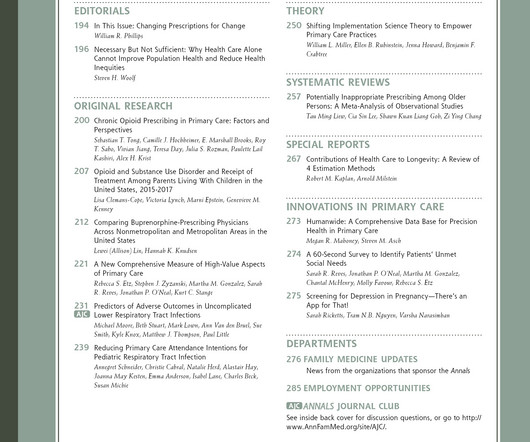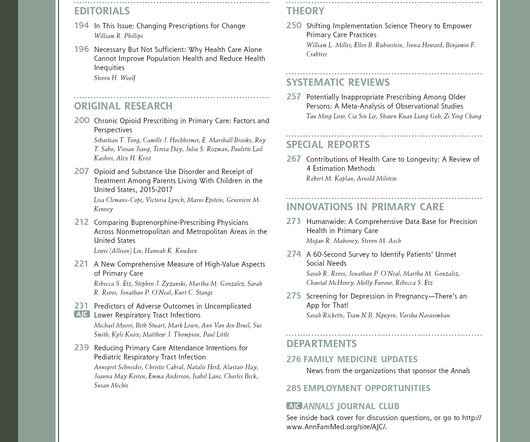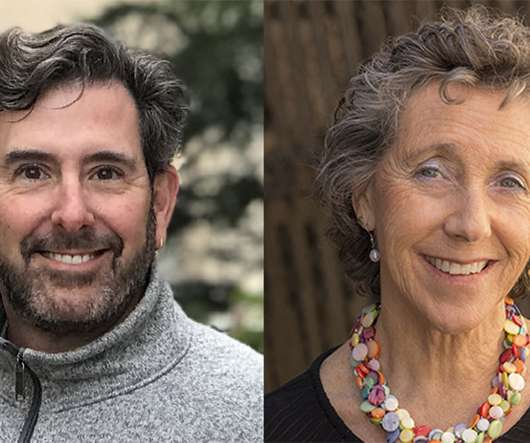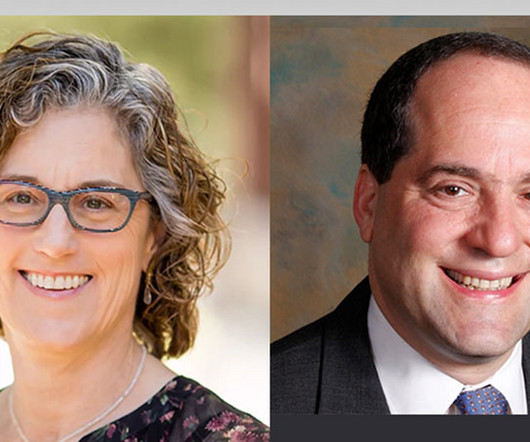Ambulatory Behavioral Health Referral Patterns in the Setting of Chronic Medical Conditions [Behavioral, psychosocial, and mental illness]
Annals of Family Medicine
NOVEMBER 20, 2024
Context: Patients with chronic medical conditions (CCs) and behavioral comorbidities have lower quality of life and increased healthcare expenses. The most common BH diagnosis on file for patients with and without a chronic condition was Anxiety disorder, unspecified (17% of patients in either group).
















Let's personalize your content